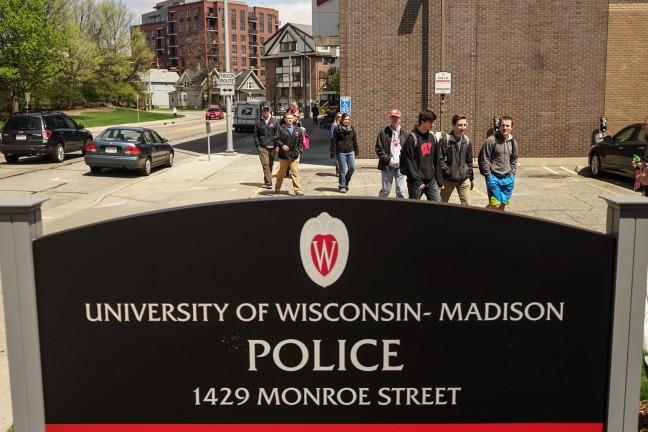In the most recent campus-wide climate survey, only 53 percent of University of Wisconsin students reported feeling comfortable contacting UW Police Department with an issue, a statistic UWPD Chief Kristen Roman found disappointing.
Some UW students found this statistic to be expected. That said, Roman wants to increase comfort between students and UWPD.
One of the students not surprised by the statistic is UW graduate student Joe McInerney.
“I’m not surprised by the results of the survey because a lot of students usually only ever see UWPD when they’re giving out drinking tickets or performing detox transports, so we have a very negative view of their work,” McInerney said.
Among the half of the student body who were not comfortable with UWPD, the findings observed a sharp decline among students in marginalized and underrepresented groups.
Only 24 percent of transgender students, 39 percent of LGBQ students, 23 percent of African American students, 35 percent of Southeast Asian students and 42 percent of Latino students reported being either “very” or “extremely” comfortable with reaching out to campus police, according to a UW survey.
According to a “Chief’s Corner” blog post published by Roman on Nov. 20, “the fact that Trans/non-binary, LGBQ, Students of Color, and students with a disability reported that they were less likely to feel comfortable contacting UWPD if they had a problem is at best disheartening and further illuminates the trust challenges facing not only our department but the department across the street and those across the nation.”
Roman acknowledged there have been difficult relationships between police and marginalized groups across the nation for many years. She said police have either unintentionally or intentionally contributed negatively to these relationships over time.
Roman asserted her department is committed to serving everyone in the campus community and improving the level of trust that students have in UWPD.
In order to make more students feel comfortable, UWPD utilizes several outreach efforts, including Community Officers, LGBTQ Liaison Officers and continued cultural competency and implicit bias training.
Katie Paxon, another UW undergraduate student, also emphasized the importance of more communication between students and police. She said in respect to several dangerous occurrences on campus throughout this first fall semester.
“With the previous attempted abductions, sexual assaults and other incidents, [UWPD] needs to foster a better and more transparent rapport with the student body,” Paxon said. “How can we trust them when we don’t talk to them?”
In an effort to create more dialogue between campus officers and students, the first UWPD Police Advisory Council is expected to be established by the end of the semester.
On Nov. 27 the department held the first of many community forums to discuss campus safety concerns and answer questions.
Through these endeavors to improve relations, Roman believes the campus community will be able to create a “significant and meaningful change over time,” through “a willingness to work together.”


